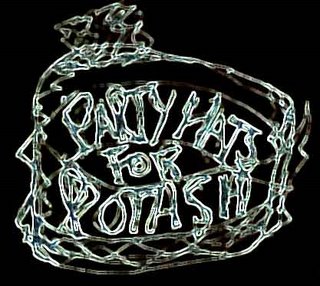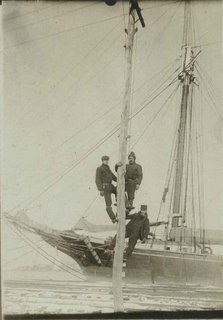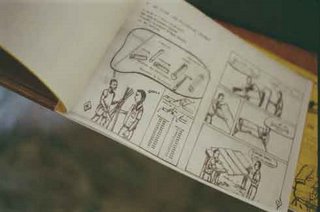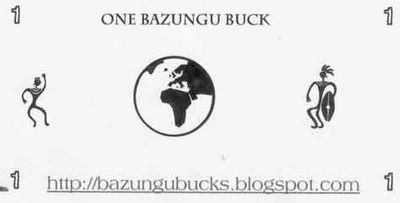Spring Harbinger

 Spring Harbinger
Spring HarbingerWarm today and delightful to see the little crocus in bloom in the lawn. They don't last very long and as far as it goes don't really have much visual impact, and yet the early flowers are such a pleasure. If you look closely you'll notice a bee inside one of the flowers. And the sight of bees as much as the flowers brings me joy. Spring will come already the signs are all about.
I hope for all of those in the path of heavy weather: safety. Spring storms can indeed be frightful in intensity.
I remember as a child a house a few houses from ours got its roof blown off in a storm. The most vivid memory isn't the roof, but the bright blue sky and brilliant sun peeking through the dark clouds once the storm passed and the smell of spring in the air. Today there were wiffs of spring perfume and the ground is soft. Tomorrow will begin warm and then hard storms with possible hail predicted later and cooler temperatures through the rest of the week. My winter visions of spring flowers isn't mindful of the storms, so it's only now I'm remembering how changeable the spring weather is.
On Friday evening I went to a gathering. Someone there began reading some of his writing from his laptop. I asked if he had considered a blog. He replied that he had, but had dismissed the notion as useless.
John Allen Paulos via
3 Quarks Daily (one of my favortite blogs) writes about the problem of getting
attention in his recent ABC News column:
Whether about blogs, songs or news stories, when people must make decisions among many different alternatives, those making them later are often greatly influenced by those making them earlier.
I suggested that the comments and the conversation wich blogs allow made up for the paucity of eyeballs. His response, "Oh, I have and editor."
The comments left on this blog suggest I need an editor!
Really the immediacy of writing blog posts is part of the pleasure. But of course good writing does require time that I'm not really willing to invest. I'm not at all convinced that even with time my writing would ever be very good. Yet even this amateurish effort makes me reflect.
Last week the
Pittsburgh Post-Gazette ran an article by a
reporter Jim Heinrich who traveled to Uganda to meet the child he'd been sponsoring through
Compassion International. It's a very moving piece and I knew I wanted to blog about it.
An idea I believe is very powerful is regular people can do a world of good by collaborationg with others around the world, especially those in poor countries. Such person-to-person encounters are fraught with hazzards, or at least puzzles to be worked out. To my surprize the
Post-Gazette article brought some issues to light upon reflection.
I had never heard of Compassion International so I looked around their Web site. From their
Statement of Faith:
We believe in the resurrection of both the saved and lost; they that are saved unto resurrection of life and they that are lost unto the resurrection of damnation.
Some of my best friends are Christians;-) That is indeed true, and however much I truly love about Christianity, the bleating about hellfire and damnation seems to lead to human actions destructive to life.
Mostly I keep rather mum about my revulsion and there is so much in Jim Heinrich's account that's so meaningful, I probably would keep quiet now; except Compassion International isn't the only charity listed as a resource in the piece. I don't quite know what to think about
World Vision International. Well, with a bit of shame, my prejudice is that World Vision is alligned with rightist Christian networks which I see as threatening an open society and promising right wing totalitarianism.
Let me be clear, I say prejudice advisedly. World Vision is one of the largest relief and assitence organizations worldwide. The good work they do is unassailable. I believe it is significant that while all American employees must sign a confession of Christian faith, World Vision as a matter of policy may employee non-Christians in communities where they work outside the USA and Europe.
Conspiracy theories are very tricky and the Internet provides ample opportunities to delve rather deeply into the depths of malicious fantasy. It's easy to find references to World Vision as a CIA front on myriad Web pages. I'm not particularly convinced. Working in the situations that World Vision does, cooperation with the CIA doesn't seem at all surprizing. I'm not even sure that's entirely a bad thing. And surely all Christian fellowship and coordinated evangelization is not a nefarious plot against civil order and governments.
Blogs are great for links to Internet tests.
Political Compass is a short test which places a person's political views within one of four quadrant: Authoritarian Left, Authoritarian Right, Libertarian Left, Libertarian Right. My score is approximately in the middle of the Libertarian Left quadrant. The test isn't a perfect instrument, but it seems a fair indicator in very general terms. View clustering around the middle of the four quadrants are ones I'm comfortable with--note of course that my position places me on the left boundary of both the economic and social scales. Nevertheless, extreme views can spell disaster both economically and socially, especially when extreme views become mass movements.
In the United States today there is a single party rule which lunges towards the extreme of the right/authoritarian quadrant. I don't think that most people who identify themselves as Republicans hold such extreme views. There is a long tradition of moderation within the Republican Party. The rise of single-party rule within the United States at the federal level was accomplished in part by deft coordination of extreme right networks. The maze of connections isn't fully known, and yet it seems clear, at least to me, that nominally Christian networks have been essential for the rise of the extreme right control.
The discussion of
Neo-fascism at Wikipedia provides many links to the discussion of Fascism post World War II. The page
Neofascism and religion provides many particularly relevant articles in re my concern of the confluence of Christianity with extreme right politics in the USA. Several of the articles are by journalist David Neiwert who writes the influential blog
Orcinus. Rhethorically using the word "fascist" in America can be counter-productive; rather than to alert to the dangers of extremism, it casts a pall over the user as extremist. Nevertheless, the dangers of the authoritarian right are present and must not go unchallenged.
The New Internationalist is a left-leaning publishing cooperative based in the UK with offices in Canada, Australia, New Zealand and the United States. Wayne Ellwood, editor for the December 2005 edition quoted a letter he received:
I love your magazine. But I’m not sure I can take it any longer; it’s one problem after another.
I chuckled because that's how I feel these days reading about African issues. I laughed, but really am quite anquished and I don't know whether I can take it anymore. Part of the feeling of despair is feeling powerless. Certainly it's not that I locate all the trouble outside the USA either. Indeed, it is within my own country I'm most likely to do something good.
In the early 1980's
The New Internationalist did an important issue:
Please do not sponsor this child. The arguments against child sponsorship programs are quite solid and in a general way draw attention to many difficulties presented by well-meaning attempts to help poor people in other countries. The articles are very worthwile reading all these years later. I'm convinced nonetheless that there is great advantage in the personal exchanges and collaboration. The Internet offers some ways to mitigate some of paper work involved that
The New Internationalist rightly crticize. Still, the problems with these sponsorship programs are not to be taken lightly.
The
Post-Gazette reporter, Jim Heinrich's piece is quite moving and personally honest; here's the
link again, do read it it you have a moment. Doing something good isn't easy, but the rewards are good. Part of trying is clarifying ones own values, something good in itself.
I'm sorry to babble on so about American politics, but I felt stuck about writing posts here at all without adressing the difficult subject of the troubling religious connection to extreme right politics in the USA. Many observant Christians are troubled too,
Chris Hedges has received a great deal of heat for this
article in
Harpers and articles like
this one.
Matthew Fox has also been critical of the collusion of Christianity and rightist politics.
Spring is coming soon. I remember now that it's a time for turbulent weather. Still no other season is full of so much promise and new life. As we try to reach out to others and to heal the many afflictions humankind suffers, we always need to be thoughtful. Still it's the promise and the knowledge that beauty comes to life that will inspire us.











